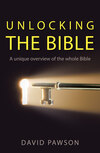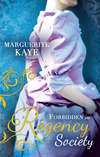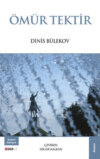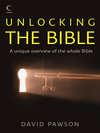Kitabı oku: «Unlocking the Bible», sayfa 18
10.
1 AND 2 KINGS

Introduction
My history teacher at school made the subject very dull. It was all about dates, battles, kings and queens and seemed to be complicated and irrelevant. My interest was revived by reading the spoof history book 1066 and All That, which was certainly more amusing than my school history lessons, and where any historical event was summed up as either ‘a good thing’ or ‘a bad thing’ – there was nothing in between.
The book of Kings reads a little like 1066 and All That (though without the humour). It describes the kings of Israel or Judah as either good or bad, depending on how they reigned. Unlike the school history many of us remember, however, biblical history is utterly compelling. It is not about irrelevant dates and battles, but is a record of God’s people told from God’s point of view. It is not for mere academic interest either: it is absolutely vital for the whole of mankind.
Context
The book of Kings focuses on the third of the four phases in the national development of Israel’s leadership. As the Overview of the Old Testament explained (Geography), the first national leaders were patriarchs, from Abraham to Joseph, then came the prophets, from Moses to Samuel. Third came the kings, from Saul to Zedekiah, and finally the priests, from Joshua to Caiaphas.
The period of the kings is covered by four books in our English Bible:
1 Samuel: Samuel to Saul
2 Samuel: David
1 Kings: Solomon to Ahab
2 Kings: Ahab to Zedekiah
In the Hebrew Scriptures this leadership phase is covered by just two books, Samuel and Kings, with the break between Samuel and Kings cutting King Ahab’s reign in two and separating the prophet Elijah’s life and death. When the Old Testament was translated into Greek in 200 BC, the books became too long for one scroll. Hebrew words have only consonants, so the addition of vowels in the Greek made the books twice the length. Thus the breaks into 1 and 2 Samuel and 1 and 2 Kings were determined more by translation than by design.
Kingdoms
In Hebrew the book is called the ‘Kingdoms’ of Israel, not ‘Kings’. The word ‘kingdom’ has a different meaning in Hebrew. In English it refers to a land over which a sovereign rules. Thus England is part of the United Kingdom under the reign of the Queen. In Hebrew, however, the word ‘kingdom’ refers to the reign of a monarch, so is defined in terms of authority not area, rule rather than realm.
Furthermore, the concept of a ‘reign’ in the Bible is very different from in the United Kingdom, where, under a constitutional monarchy, the Queen reigns but does not rule, the power residing in the elected government. The big advantage is that the armed forces and courts of law are not under the government directly, but are responsible to the Queen. The monarchy is valued not so much for the power it wields as for the power it keeps from others.
The kings of Israel, by contrast, had absolute power. They made the rules and commanded the armed forces. There was no parliament, no voting and no opposition parties. The king ruled by decree and not by debate. His influence over his subjects was total, and therefore his character and conduct shaped society during his rule. He stood as a representative of the nation before God, but also as a representative of God before the nation.
This meant a major change in the way the nation was evaluated. During the time described in Joshua, Judges and Ruth, there was a loose federation and the people were judged according to their actions. In Samuel and Kings, however, the king’s character and conduct decided the fate of the nation.
Selected history
Although the book is about the kings of Israel, it is not evenhanded in its allocation of space to each king. For example, Omri was a king in the north whom we know from other historical sources to have had an outstanding reign, creating an extraordinary economic turnaround for the nation. Yet the book of Kings dismisses him in eight verses, because he was deficient in the one area that mattered: he did evil in the sight of the Lord. Similarly, Jereboam II had a mini golden age in the north, yet he is given just seven verses for the same reason. On the other hand, Hezekiah, who was largely a good king, is given three chapters, a single prayer of Solomon covers 38 verses, and the stories of Elijah and Elisha, who were not kings at all, take up a third of the two books of Kings.
This apparently uneven treatment occurs because the writer is not driven by a conventional historical approach. We noted in our study of Joshua that any historian has to select what is important, make connections between the events or people he has selected, and then give an explanation as to why the events led on from each other. The writer of Kings is not interested in focusing on political, economic or military history, though he may mention all these in passing. Rather, he is concerned with two aspects of each king’s rule or kingdom:
1 Its spiritual qualities – worship, either of the God of Israel or idols
2 Its moral qualities – justice and morality, or their opposites
Prophetic history
Kings is the last of a collection of books known as the ‘former prophets’ in the Hebrew Bible and follows Joshua, Judges and Samuel. This is history from God’s viewpoint. Individuals and events are mentioned because God regards them as important and necessary for future generations. A man may be a brilliant politician or economist, but God is primarily interested in his belief and behaviour.
We could rightly term these books ‘holy history’, for they are a record with an abiding message and a story with an eternal moral. They offer us not just a lesson from history, but the lesson of history. Those who do not learn it are condemned to repeat it.
Universal truth
There are patterns in the history of Israel which can be universally applied. Take, for example, the length of the reign of each king mentioned in the book. A good king reigned on average for 33 years and a bad king on average for 11 years. From this we can derive the general principle that good rulers last longer than bad ones, since God is in ultimate control of history and can keep good kings on the throne.
There are exceptions – not every good king had a long reign and not every bad king had a short one – but the principle is generally true and can, indeed, still be seen in the length of time modern leaders rule.
The rise and fall of the nation
Kings covers some pivotal events in the history of God’s people which we need to note if we are to grasp the message of the book and understand the books which follow. The book of 2 Samuel and the early part of 1 Kings describe the powerful position of Israel on the world stage, but most of the book of Kings is concerned with the nation’s downfall. Under David and Solomon the nation was eventually united, and the empire stretched from Egypt to the Euphrates. At last the Israelites inhabited most of the land promised to Abraham 1,000 years before, and controlled more besides. But from Solomon’s time onwards they headed downhill, through civil war and a divided kingdom to exile in a foreign land.
The national split meant that the name Israel no longer referred to the whole nation, but only to the 10 tribes of the north. The southern tribes of Judah and Benjamin were known by the name of the larger one, Judah. This distinction continues through the rest of the Old Testament.
The southern tribes of Judah and Benjamin became known as ‘Jews’, derived from the tribal name Judah. Before this point the people were known collectively as ‘Hebrews’ or ‘Israelites’. This is an important distinction to bear in mind. In the New Testament John’s Gospel distinguishes between the Jews in the south and the Galileans in the north. It was the Jews in the south who were largely responsible for the crucifixion of Jesus, not all the people of Israel per se.
A TALE OF TWO NATIONS
Kings covers the histories of these two ‘nations’. The spiritual and moral standards of the 10 tribes in the north steadily deteriorated, until Assyria sent them into exile. In the south the progression downwards is less marked. There were good kings such as Hezekiah and Josiah, but eventually they went the same way as the north and were taken away to Babylon. Their forefather Abraham had been called out of Ur – now they finished up where Abraham had begun, though this time as displaced persons.
It is a salutary lesson about how easy it is to lose what has been gained. Often the duration of the demise is much less than the time it took to reach the pinnacle.
The kingdom of Israel
The kingdom of Israel went through three stages, summarized in the table below.
1. United kingdom

2. Divided kingdom
10 tribes in the north – ‘Israel’
2 tribes in the south – ‘Judah’

3. Single kingdom

UNITY
The first stage was the ‘United Kingdom’, when three kings reigned in turn over the whole of Israel. The first king was Saul, who was largely bad; the second was David, who was mainly good; and the third was Solomon, who was both good and bad.
Each reign lasted exactly 40 years. The number 40 is often indicative of the length of time God tests people. Jesus was tempted for 40 days in the wilderness; the children of Israel were in the wilderness for 40 years. It is a trial period in God’s sight, and all three kings failed the test. They started well, but finished badly. David received credit for being ‘a man after God’s own heart’, but even he had a disappointing end.
The book of 1 Samuel covers Saul’s 40 years, 2 Samuel covers David’s 40 years and the first 11 chapters of 1 Kings cover Solomon’s 40 years.
WAR
As soon as Solomon died, the north and the south became locked in a civil war that wrecked the ‘United Kingdom’. The seeds of unrest had been sown when Solomon had taxed the nation heavily and confined the benefits to the south, causing the north to grow discontented. Solomon’s death was the catalyst for this unrest to boil over into armed conflict.
The two southern tribes kept the capital Jerusalem and the royal line of David. The 10 tribes in the north lost both and set up their own centres of worship, at Bethel and Dan, complete with two golden calves as the focus of their worship. Since the royal line was in the south, they also elected their own king, Jeroboam.
Succession in the north proved to be rarely smooth. There were assassinations, coups d’état, takeovers. The kings were often self-elected.
For 80 years after the split, there was war between the north and the south amid increasing animosity, culminating with the tribes in the north making a treaty with Syria and Damascus to try to wipe out the two tribes in the south. Isaiah gives the details in his prophecy.
PEACE
The 80 years of war between the north and the south were followed by 80 years of peace, during which God sent two prophets who play a huge part in the book of Kings. Elijah’s ministry is recorded in 1 Kings and the first two chapters of 2 Kings, and Elisha, who followed him, is a key figure in the early part of 2 Kings.
The respite did not halt the decline, however, and in 721 BC the Assyrians defeated the northern tribes of Israel and deported them from their land. They became the ‘10 lost tribes’, never to return to the land as a nation.
After the exile of the northern kingdom of Israel, the book focuses exclusively on Judah and Benjamin in the south. It was a very small kingdom, with Jerusalem as its capital and a small amount of land surrounding it, but their kings were descended from the royal line and they knew about God’s promise to David that there would always be one of his descendants on the throne.
When the northern tribes were deported, God sent prophetic warnings from Isaiah and Micah that the same would happen to the south, but this had little or no effect. The last event recorded in the book of Kings is that Judah was led into exile by the Babylonians just 140 years later.
Purpose
We come now to focus on the basic questions that should inform our reading of any book of the Bible: Who wrote the book? How did they write it? When did they write it? Why did they write it?
Who wrote Kings?
The writer of the book cannot be known with any certainty. Most Jews think it was Jeremiah and there are a number of reasons why the case for this is strong.
1 Parts of Kings are identical to Jeremiah’s prophecy – even the wording is exactly the same.
2 Jeremiah is not mentioned in the book, despite being a contemporary of Josiah and at the heart of many of the events described. It would seem impossible for anyone to cover this period without mentioning Jeremiah, but if Jeremiah is the author it would be in keeping with other writers of the Bible for him to be self-effacing.
3 We know that prophets often wrote about kings. Isaiah wrote about Uzziah and Hezekiah, and God specifically instructed Jeremiah in his prophecy to write about Israel.
4 Furthermore, there was a time in Jeremiah’s ministry when recalling the history of the nation would have been especially pertinent. His prophecy tells of the time when the people of God rejected his impassioned reminders that they should be obedient to the covenant and he had to pronounce curses on the nation. This would have been the appropriate juncture to write the book of Kings.
The one problem with this hypothesis is that Jeremiah was taken to Egypt in 586 BC, and he died there, yet the last part of 2 Kings exhibits remarkable knowledge of events in Babylon. It is difficult to see how these details could square with him writing the whole book. Perhaps the best solution is that Jeremiah wrote parts of Kings, with someone else finishing it. This might explain his own absence from the narrative.
Some suggest Ezekiel as another candidate. He was known to depend on Jeremiah and has a similar style. However, the date of his last prophecy is 571 BC, which argues against him being the writer. Jeremiah is the strongest candidate, but without further proof, we must leave the question open.
How was Kings written?
The book of Kings includes references to the fact that further information can be found in other sources: the Acts of Solomon, the books of the Chronicles of the King of Israel (mentioned 17 times) and the books of the Chronicles of the King of Judah (mentioned 15 times). These books are not the books of Chronicles included in the Bible. The writer is using national records woven together to communicate a lesson about history.
Parts of Isaiah are identical in wording to Kings, suggesting that either they used a common source or one borrowed from the other at certain points.
The writer covers events in the kingdoms of Judah and Israel simultaneously. It can be confusing to read about the king of Judah, followed immediately by a section on the king of Israel, but the order is deliberate. The writer wants us to understand how each kingdom was progressing in relation to its counterpart. This is vital for the narrative during the times when the two kingdoms were at war, or when intermarriage led to a time of peace.
The writer therefore used the same sort of historical methods employed today, taking material from other sources, gathering information from libraries, and so on. The difference is that his selection was divinely inspired, so that what we have in Kings is not simply history, but the Word of God.
When was Kings written?
A vital clue to the book’s date is given by phrases suggesting the temple in Jerusalem was still standing, ‘and still is to this day’. This suggests a date prior to the exile to Babylon in 586 BC, which was when the temple was destroyed.
However, another part of the book suggests a later date of writing. The Babylonians killed Zedekiah, the last king of Judah, having tied him up in chains and made him watch the execution of his sons before removing his eyes. The previous king, Jehoiachin, had given in to the Babylonians and was kept as a prisoner. The last thing we read in the book of Kings is that Nebuchadnezzar, King of Babylon, released Jehoiachin from prison and invited him to dine at his table. This suggests that the book was completed half way through the exile, especially as there is no mention of the people’s return. It also means that someone from the royal line of David had his meals at the king’s table in Babylon, and so Nebuchadnezzar unwittingly helped to keep the royal line secure.
Taking these two details together, therefore, it seems that the book was mostly written before the fall of Jerusalem, but was actually completed during the exile.
Why was Kings written?
The motivation of the writer follows naturally from the answer to the question of when the book was written.
Here is a nation that has lost its land and its capital, and has been taken away to another land. A whole generation will never see home again. They are slaves once more, their temple lies in ruins, so inevitably they have questions about their relationship with God. Where is he? Why has he allowed all this to happen? What about his promises?
The book of Kings provides the answers to these questions. It explains that the fault for the exile lies squarely with the people. God kept his promises: he promised that if the people misbehaved they would lose the land, but in spite of repeated warnings they did not listen. The history of Kings is thus a profound lesson to these people in exile.
Yet even in this dark book there is hope, because God promises never to break his part of the covenant. God says that although the people may break the covenant, he never will. He promises to bring his children back from exile. The punishment will be for a limited time only.
In fact, the people remained in the land of Babylon for 70 years. The number was not arbitrary. God had told them to let the land rest every seventh year, but they had ignored this law for 500 years, from the time of Solomon onwards. During that time, therefore, the land had missed 70 years of rest, so in one sense the 70-year exile provided the land with a chance to catch up on its holidays!
The book of Kings is saying that the exile was a disastrous time, but it was not hopeless. God had promised to keep the royal line of David going and he would do so.
Content
Solomon
As we look at the book in more detail we begin with the king who dominates the early chapters. Solomon’s name means ‘peace’, which was appropriate since his reign benefited from the peace David had secured when building the empire. He was a good man who began well.
At the start of his reign God appeared to him in a dream and offered to give him anything he asked for. Solomon, knowing that he lacked experience, asked for wisdom. God promised Solomon not just wisdom, but many things he did not ask for besides: wealth, fame and power.
Solomon’s gift of wisdom was demonstrated in the famous story of the two prostitutes who argued about a baby. Both had babies, but during the night one of the babies died, so its mother stole the other’s baby and placed the dead one in its place. Solomon had to adjudicate on this most awkward situation. To whom did the live baby belong? Solomon asked for wisdom from God, and then told the women to cut the baby in half and keep half each. As soon as Solomon said this, the real mother pleaded that the baby be allowed to live and be given to the other woman. Solomon thus knew who was the true mother.
Perhaps Solomon’s most memorable act was his building of the temple with the materials and the plans provided by his father David. God had promised David that he would allow his son to build the first permanent place for centralized worship, predicted in the book of Deuteronomy centuries before. It was a magnificent temple, and took seven years to build (it took 12 years to build Solomon’s own palace, however).
We read that although the temple was built out of cut stone, the sound of hammer and chisel was never heard. This was a mystery for many years until someone discovered a gigantic cave the size of a large theatre at Mount Moriah near Calvary outside Jerusalem. The floor is covered with millions of little chips where the rock has been cut. The rock is so soft that it can be cut with a penknife, but when it is brought out into the open air it oxidizes and goes quite hard. All the stone for the temple came from this cave, where they cut the blocks to the exact shape needed to fit into the temple above ground.
Solomon was also responsible for the dedication of the temple. His dedicatory prayer, based on Leviticus 26 and Deuteronomy 28, is recorded at length in Kings. It mentions God’s promise to bring his people back from exile if they turned back to him, a promise that became especially significant for those in Babylon when the book came out.
His reign brought great prosperity to the people of Israel. The empire stretched from Egypt to the Euphrates and included most of the territory which had been promised to them. Solomon’s fame spread far and wide, even reaching the Queen of Sheba, who paid him a visit and was impressed by the splendour of his palace.
The time of peace meant opportunity for leisure and learning. Solomon collected 3,000 proverbs and wrote 1,005 songs. God chose to publish just six of these songs in the Bible. My theory is that Solomon wrote a song for each of his 700 wives and 300 concubines, but God picked only a few, including the one which appears in the Song of Solomon. Incidentally, it is at this point that we really must question whether Solomon’s wisdom is demonstrated in taking so many wives. That meant 700 mothers-in-law! Like so many people, he had wisdom for everybody else, but not much for himself.
The Song of Solomon is written by a young man, so much in love that God is not mentioned directly. The book of Proverbs is mostly Solomon’s work, written when he was middle-aged. Ecclesiastes was written at the end of his life, and there he shares the philosophy of an old man with the young. In that book we see Solomon’s whole life, with time for philosophy, music, agriculture and architecture. Although he developed many interests, none of them satisfied him and Ecclesiastes is one of the saddest books in the Bible.
BAD
Solomon’s main weakness has already been hinted at – he had too many wives. This was not just for sensual pleasure, but also revealed a lust for power. Many of the marriages were politically motivated, for example his marriage to the daughter of Pharaoh. As an Egyptian she could not live in the holy city of Jerusalem, so Solomon built her a palace just north of the temple, outside the city wall. Recent excavations there have uncovered the only Egyptian artefacts in the whole of Israel.
We are therefore presented with an interesting juxtaposition: on the one hand there is the magnificent temple, built to aid Israel’s worship of the one true God; on the other there is King Solomon with many foreign wives, who all brought their own gods with them and dragged people away from the worship of the God of Israel. Solomon was not the only king to marry foreign women, but no other king could match him in terms of numbers.
The building of the temple also exacted a huge cost. Solomon used forced labour and heavy taxation which enraged the northern tribes, who were resentful at having to finance a southern building, so far from their own territories. In spite of the success of the temple, therefore, Solomon was laying the foundations for national catastrophe.
Solomon was a king with a divided heart who left a divided kingdom. Soon the empire would break up. Even in Solomon’s time, Hadad the Edomite rebelled, and more would follow.
Divided kingdom
The reigns of the kings of Judah and Israel are recorded differently.

The kings of the north are all compared to the first northern king, Jeroboam, who was a bad king. So we read repeatedly of subsequent kings: ‘…and he did what was evil in the sight of the Lord, just like Jeroboam.’
In the account of the kings of Judah in the south, the writer uses different records and varies the order and the details. He starts with the date when they began to reign, but follows with the king’s age – Josiah was just eight, for example. The length of the reign is given next, but then comes the name of the mother, not the father, for reasons which are not clear. (Today a person qualifies as a Jew if their mother is a Jew, but in the Bible it was the father who determined nationality.) Then comes the judgement as to whether they were good or evil. Whilst every king in the north was evil, the south had a mixture of good and evil, with David as the benchmark.
The kings
The north had 20 kings and the south had the same number, but the south survived for 140 years longer than the north because, as we noted earlier, good kings reign longer. Some of the bad kings survived only a couple of months before being killed.
As mentioned above, the northern kings were all bad, although some were not as bad as the others.

The south had six good and two very good kings (Hezekiah and Josiah), but also had one who was the worst of all. This is the exception to the rule about bad kings and short reigns, for Manasseh reigned for 55 years.
The south had just one dynasty, whereas the north had nine, with the succession changing hands due to assassination six times.
There was one queen. God had told David there would always be a man on the throne – women were not allowed to rule as monarchs. Athaliah had other ideas. She was Jezebel’s daughter and married the king of Judah in the south. She wanted to be the first queen of Israel, so she systematically killed all the children of David’s royal line, so that the way would be open for her to become queen. However, an aunt took the youngest boy, Joash, and hid him ready to take the throne when Athaliah died, so the royal line was spared.
The two very good kings of Judah were Hezekiah and Josiah. Hezekiah was contemporary with Isaiah and his story is included in Isaiah’s prophecy. Hezekiah was a good king in many ways. It was he who ordered the digging of the tunnel to bring water into Jerusalem and make it safe against enemies. His big mistake occurred when he was taken ill and welcomed to his palace men from the (then) small and unknown city of Babylon. They brought a ‘get well card’ and Hezekiah was flattered that someone so far away knew and cared about his illness. He showed the men round the palace and the temple. It was Isaiah who pointed out the error. He told Hezekiah that the Babylonians would take away everything he showed them. Some years later they did just that.
The other good king came to the throne of Judah at just eight years of age. Josiah was born in the same year as Jeremiah the prophet. While they were cleaning the temple his men found the scroll of Deuteronomy, which had not been read for many years. When King Josiah read the curses God had promised if his people strayed from his laws, he was alarmed and began at once to put things right. He ordered a national reformation, destroying all the high places and calling a halt to the idolatry which had infected the land, in the hope that this would bring renewal. But people’s hearts remained far from God. It is not possible to make people good by passing good laws.
Josiah also made a big mistake: he went to war with Egypt when he did not need to and he was killed at Megiddo. When he died the nation reverted to the evil practices he had stamped out.
Hezekiah was followed by Manasseh, a very bad king who took evil to new depths. He worshipped the god Molech, and this included sacrificing his baby sons in the valley of Hinnon, or ‘Gehenna’. He also executed Isaiah the prophet for his preaching, ordering to him to be bound and put inside a hollow tree trunk, after which two carpenters with a big saw cut the tree in half.
One of the worst kings was Ahab, who married a Phoenician princess from Tia. Her name in Phoenician meant ‘primrose’, but the same name in Hebrew, Jezebel, meant ‘garbage’, and this was how she was known. It was clear that she used Ahab to achieve her own evil ends and that he needed little persuading. It was her scheming, for example, which arranged the death of a neighbour, Naboth, so that Ahab could take possession of his vineyard.
Elijah
It was this event which marked the start of the prophet Elijah’s ministry. He was a Tishbite from Gilead, in the Trans-Jordan region, and was regarded as one of the finest of Israel’s prophets. Although there is no book written in his name, Kings covers more of his life than most of the kings themselves.
He is best known for his confrontation with the prophets of Baal on Mount Carmel. Mount Carmel is 12 miles long and juts out into the ocean in the north of Israel. At the eastern (inland) end there is a large depression just below the summit where 30,000 people could gather. This must be the place where Elijah challenged the prophets of Baal, whom Jezebel had introduced to the palace. There is a spring there that never runs dry, even in a drought. The text tells us that Elijah doused the sacrifice with water, even though there had been no rain for three and a half years.
The story is well known. Elijah built an altar and challenged the prophets of Baal to build their own altar alongside his and call on their gods for fire to burn up the sacrifice.
It was a very clever challenge. We now know that the altars of Baal had a tunnel underneath where a priest would be concealed to set fire to the wood when the people cried out to the god. Elijah cunningly asked them to build their altar in the open and promised to build his altar in exactly the same way, only he would also add water to make the challenge greater. His boldness led him to mock the priests in such a way that if his experiment had failed he would surely have been killed. He encouraged them to shout louder, suggested that their god was on holiday or relieving himself. It was a key moment in the history of the northern tribes. God sent the fire, Elijah’s sacrifice was burned up and Israel knew who was truly powerful. The prophets of Baal were routed.
Ücretsiz ön izlemeyi tamamladınız.











